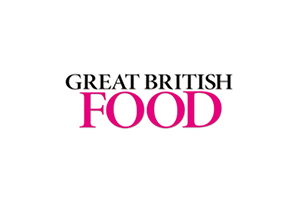Is it Great? Is it even British?
A fair proportion of what is served in Britain today barely even qualifies as food. Yet the queues for Greggs sausage rolls around Sheffield (breakfast, lunch and dinner) suggest that not very great is great enough.
And British? A trip down London Road is a trip around the British Empire, through Europe and back via North Africa. It’s definitely better than Greggs. In fact the authenticity and honesty in the South Indian restaurants, Turkish grills and Middle Eastern falafel bars put the food in many posher restaurants to shame. The British relationship with the rest of the world is written down that street, from the violence of the empire to our hospitality for the oppressed.
Still, that’s not what we mean when we say Great British Food. It’s something else. It’s fish and chips, meat and potato pie, Sunday roast, kippers, the full English, cream teas and lots of nostalgia. But nostalgia isn’t what it it used to be and most versions of the above can be pretty dire in our cafes and pubs. It was recently reported that Germans are getting a taste for British food instead of their own dishes. I’m not sure if that’s a compliment or not.
There’s something else happening though – restaurants are serving up ‘modern British cuisine’, notably chefs such as Mark Hix and Fergus Henderson down in the smoke. Restaurants such as Kitchen and the Milestone up here. Their menus are impressive re-imaginings of British traditional dishes using the best ingredients from independent producers. Much of it is deceptively simple, such as brown crabmeat on toast. This movement follows the Italian ‘tipico’ or French ‘terror’ idea – get the best produce you can, treat it with respect and let the ingredients speak for themselves.
It’s back to the way it used to be done. British Cuisine in a modern style. Classic, simple, honest food. Except, like the Italian and French versions of this style, it’s all a myth.
The compelling story of how this relates to Italian food is told in Delizia by John Dickie. Before the 1950s the vast majority of poor Italians ate polenta and nothing but polenta. Look at spag bol; tomatoes from South America, pasta from Arabia and garlic from Asia. In the same vein look at the Sunday roast; chicken from the Indian jungle, potatoes from America and wheat for Yorkshire puddings from the Middle East. Like London Road, the Sunday roast is a history lesson, albeit an older one.
The myth continues with the idea of a romanticised past where we all ate traditional, wholesome foods and didn’t argue round the dinner table. Really we are thinking about the post-war years and anyone who remembers those times remembers rationing (until 1954), grey food and a jealous eye westward to hot dogs and sundaes.
There is no great British food revival because there is very little to revive. Medieval food would have been spiced like North African tagines, Victorian food was unmentionable things in aspic and if you were poor it was turnips and adulterated bread. Modern British cuisine is fantastic, but it’s the start of a new food movement, not a revival. There are of course regional specialities and superb traditional foods, many of which are brilliantly recorded in From Eccles Cake to Hawkshead Wig by Laura Mason and Catherine Brown.
However, Britain was the first place to industrialise – the North was the first in Britain – and with that revolution came the industrialisation of food, a distancing of the urban masses from the rural producers. Greggs was conceived in the back-to-back houses and furnaces of Yorkshire and Lancashire. It just took a century or so to be born.
The farmers’ markets, British regional food cookbooks, the naming of the producer on menus and scotch eggs made from happy pigs are all new and only possible because of the visionary chefs, farmers and campaigners who know that Britain has the best produce in the world – beef, lamb, salmon, cheese, apples and on and on. You’re probably five minutes from an apple tree that has just dropped its season’s fruit on the ground. Why aren’t we eating it? We used to export it all but now we are cooking and eating it.
It makes our cuisine truly ours to create and eat. Look back at Great British Food with irony perhaps, but look forward with relish.
slowfood.org.uk
growsheffield.com/pages/groShefAbund.html
From Eccles Cake to Hawkshead Wig: A Celebration of Northern Food: by Laura Mason, Catherine Brown
British Regional Food by Mark Hix
Delizia! The Epic History of the Italians and Their Food by John Dickie
Leon Ballin.
